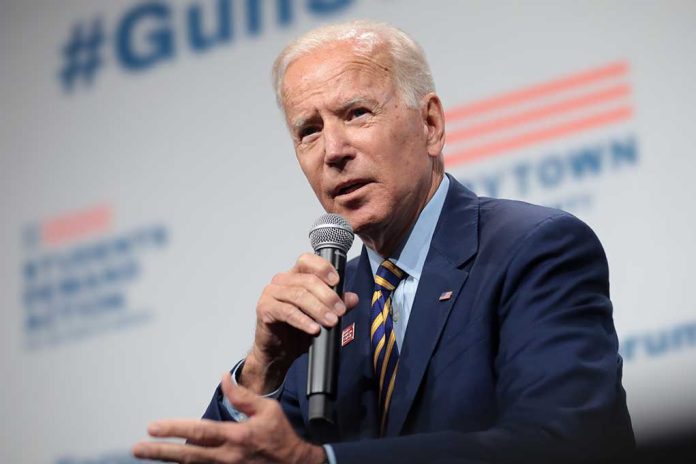
The Biden administration releases 11 Yemeni detainees from Guantanamo Bay, leaving only 15 prisoners at the controversial facility.
At a Glance
- 11 Yemeni detainees transferred to Oman as part of Biden’s closure strategy
- Released prisoners include alleged al Qaeda fighters and bin Laden bodyguards
- Transfer leaves only 15 detainees at Guantanamo Bay, the lowest in its history
- None of the released prisoners had been charged with crimes during detention
- Move faces criticism due to detainees’ alleged extremist backgrounds
Biden Administration’s Controversial Decision
The Biden administration has taken a significant step towards closing the Guantanamo Bay detention facility by releasing 11 Yemeni detainees to Oman. This move, part of a broader strategy to reduce the prison population, has sparked debate due to the backgrounds of those released.
Among those transferred were individuals with alleged ties to al Qaeda, including Moath Hamza Ahmed al-Alwi and Suhayl Abdul Anam al Sharabi, both reported to have been bodyguards for Osama bin Laden. The release of these detainees, captured after the September 11, 2001 attacks, has raised concerns about potential security risks.
The Biden administration has released 11 additional detainees from the U.S. military prison in Guantánamo Bay, sending the men, all natives of Yemen, to neighboring Oman, the Pentagon said Monday. https://t.co/GjHH3dq9GW
— The Washington Post (@washingtonpost) January 7, 2025
Transfer Process and Security Measures
The transfer operation, conducted secretly by the Pentagon, was the result of a thorough interagency review. Oman has agreed to resettle the former detainees and provide security monitoring, addressing some of the concerns about their release.
“While the men had been “approved for transfer by national security officials” more than two years ago, they were approved to be transferred to Oman” The Department of Defense emphasized that the transfer aligns with U.S. national security interests. However, the decision has faced scrutiny, given the detainees’ alleged extremist backgrounds and the lack of formal charges against them during their detention.
Implications for Guantanamo Bay’s Future
This transfer marks a significant milestone in the Biden administration’s attempts to close Guantanamo Bay. With only 15 detainees remaining, the facility now holds its smallest population in over two decades. “The U.S. military sent 11 Yemeni prisoners at Guantánamo Bay to Oman to restart their lives, the Pentagon said on Monday, leaving just 15 men in the prison in a bold push at the end of the Biden administration that has left the prison population smaller than at any time in its more than 20-year history”
The administration’s approach to Guantanamo Bay detainees has been controversial. In addition to these transfers, the Biden administration has offered plea deals to alleged 9/11 mastermind Khalid Sheikh Mohammed and co-conspirators, potentially sparing them the death penalty. This strategy has drawn criticism from those who argue for stricter handling of terror suspects.
International Cooperation and Future Challenges
The U.S. government has expressed appreciation for Oman’s willingness to assist in reducing the Guantanamo Bay detainee population. This international cooperation is crucial for the administration’s closure plans, as U.S. law prohibits sending Guantánamo prisoners to Yemen due to the country’s instability from civil war.
As the Biden administration continues its efforts to close Guantanamo Bay, it faces ongoing challenges, including Congressional opposition and concerns about the fate of remaining detainees and ultimately running out of time days before President-elect Trump’s inauguration.
Sources:
Biden Administration Releases 11 Yemeni Terrorists from Guantanamo Bay to Oman
U.S. Sends 11 Guantánamo Prisoners to Oman to Start New Lives













